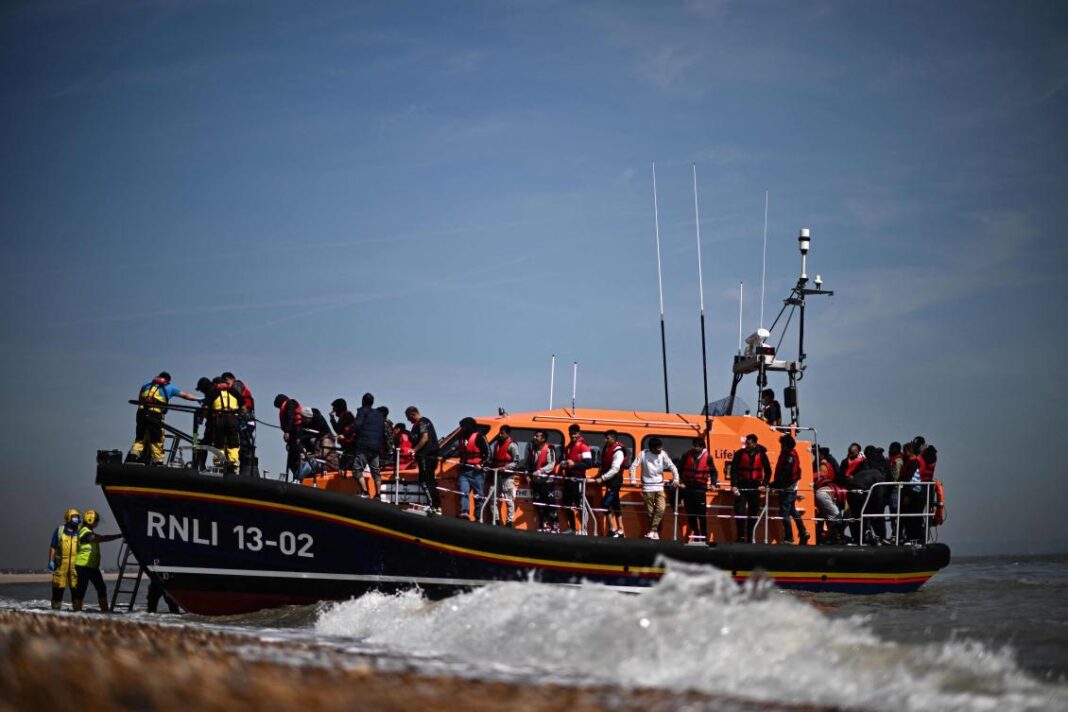LONDON/KIGALI: Britain pressed on with its plan to deport asylum seekers to Rwanda on Wednesday despite a last-minute intervention by European judges that grounded the first flight minutes before it was due to depart.
The government had been forced to fight a series of legal challenges in London courts, and believed it was ready to deport a handful of migrants on a charter plane to Rwanda on Tuesday night before the European Court of Human Rights (ECHO) stepped in.
Charities, political opponents and religious leaders have accused the government of waging an “inhumane” battle against asylum seekers. The government argues the policy will smash the business model of people-smuggling networks.
Therese Coffey, work and pensions minister, told BBC TV the government had been surprised by the intervention but was already preparing for the next flight.
“We still need to obviously go through that ruling, decide the next legal steps but also prepare the next flight,” she said.
“The only people who really benefit from this are the traffickers who, frankly as they push the boats out, don’t really care if people live or die.”
Britain struck a deal with Rwanda in April to sends tens of thousands of asylum seekers to the East African country in what it said was a bid to stem the flow of migrants who make dangerous trips across the English Channel from France.
The United Nations’ refugee chief has called the policy “catastrophic,” the entire leadership of the Church of England denounced it as immoral, and media reports have said Prince Charles, the heir to the throne, had privately described the plan as “appalling.”
Prime Minister Boris Johnson said Britain would not be deterred, and the issue has raised demands from some Conservative lawmakers for Britain to pull out of the European Convention on Human Rights altogether.
“Will it be necessary to change some laws to help us as we go along? It may very well be and all these options are under constant review,” Johnson said on Tuesday.
Coffey said she was not aware of any plan for Britain to change its relationship with the European court, which is part of the 46-nation Council of Europe.
The ECHO ruling, which related to one of the men, an Iraqi, who was due to be on the first Rwandan flight, said he should not be removed until after a full court trial is held in London to decide on the legality of the scheme. This is due to take place next month.
The Care4Calais charity, which launched legal challenges on behalf of some of the migrants, said of the seven men due to be on the flight, four had their deportations blocked by the British courts and three by the ECHO.
Britain says the 120-million-pound ($148 million) deal with Rwanda will smash the business model of people-smuggling networks as well as stemming the flow of dangerous cross-Channel trips. More than 28,500 people arrived in Britain on small boats last year, and some 444 were detected on Tuesday alone.
The Rwandan government said it remained fully committed to the plan.
“Rwanda stands ready to receive the migrants when they do arrive and offer them safety and opportunity in our country,” government spokesperson Yolande Makolo said.
UK confident it can overturn legal ban on Rwanda plan




